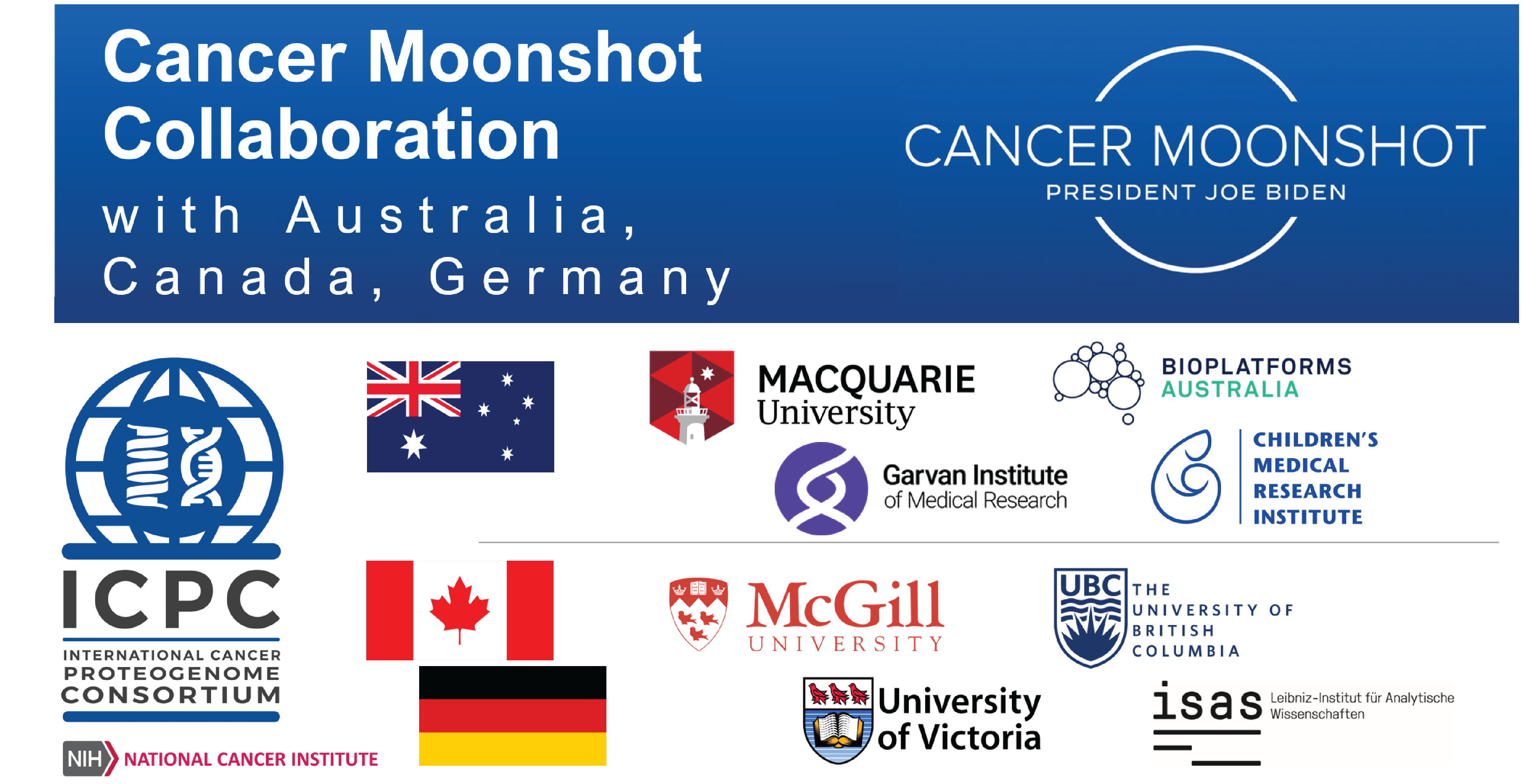The National Cancer Institute (NCI) of the National Institutes of Health is pleased to announce the renewal of partnerships with Australia, Canada, and Germany. These partnerships, through memoranda of understanding (MOUs) to the NCI Cancer Moonshot International Cancer Proteogenome Consortium (ICPC), affirms a commitment to accelerate our understanding of how proteins and genes (proteogenomics) contribute to an individual’s cancer and better inform patient care.

Power of Collaboration: These partnerships bring together the scientific and technical capabilities in proteogenomics between the NCI and research teams in Australia, Canada, and Germany. ICPC is aligned with the goals of the reignited Cancer Moonshot. The NCI considers Australia, Canada and Germany important partners in achieving the goals of the reinvigorated Cancer Moonshot and continues to support efforts that accelerate research and screening that will improve outcomes for people with cancer, and that make life sciences
data available to the public.
NCI Renewed Collaboration with ICPC Team Australia
Australia has been an important partner in international cancer research as part of the Cancer Moonshot since 2016. This international cancer moonshot collaboration brings together the scientific and technical capabilities of Macquarie University, Children's Medical Research Institute, Garvan Institute of Medical Research, and Bioplatforms Australia.
Team Australia’s work under NCI’s ICPC has focused on melanoma skin cancer, colorectal cancer, childhood and young onset cancers, and rare and neglected cancers.
Recently, this team completed a protein map for 949 cancer cell lines across over 40 cancer types, which have been tested with 650 different treatments (published in Cancer Cell, 2022). Advanced computational methods were then used to predict the response of cancer cells to treatment. This study lays the foundation for ongoing efforts to predict the response of individual cancer to drugs based on the proteins cancer contains.
NCI Renewed Collaboration with ICPC Team Canada/Germany
Canada and Germany have been an important partner in international cancer research as part of the Cancer Moonshot since 2016. This international cancer moonshot collaboration brings together the scientific and technical capabilities of the Royal Institution for the Advancement of Learning/McGill University (McGill), the University of Victoria (UVic), the University of British Columbia (UBC), and the Leibniz Institute for Analytical Sciences (ISAS).
Team Canada/Germany’s work under NCI’s ICPC has focused on breast cancer, lung cancer, leukemia, colorectal cancer, and prostate cancer. In addition, the team has developed 982 fit-for-purpose targeted protein assays of which are made available to the public through NCI’s proteomic Assay Portal.
About ICPC
The NCI Cancer Moonshot ICPC was launched in 2016 and represents a voluntary scientific organization that provides a forum for collaboration among some of the world's leading cancer research centers. ICPC currently includes research institutions from 14 countries. Data findings from ICPC members are made available to cancer researchers and physicians globally to help further their understanding of cancer and to better inform patient care. Cancer knows no borders.

